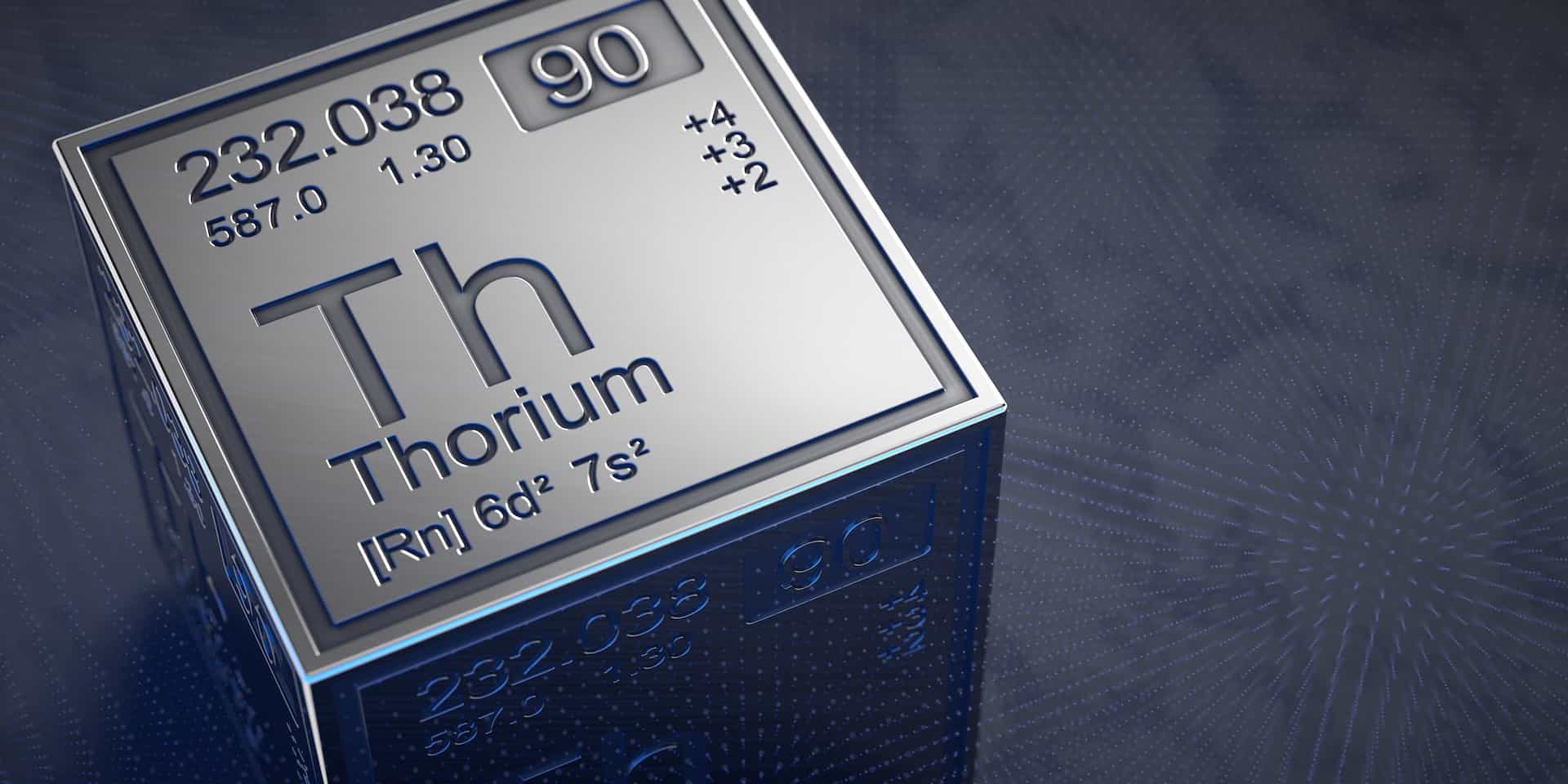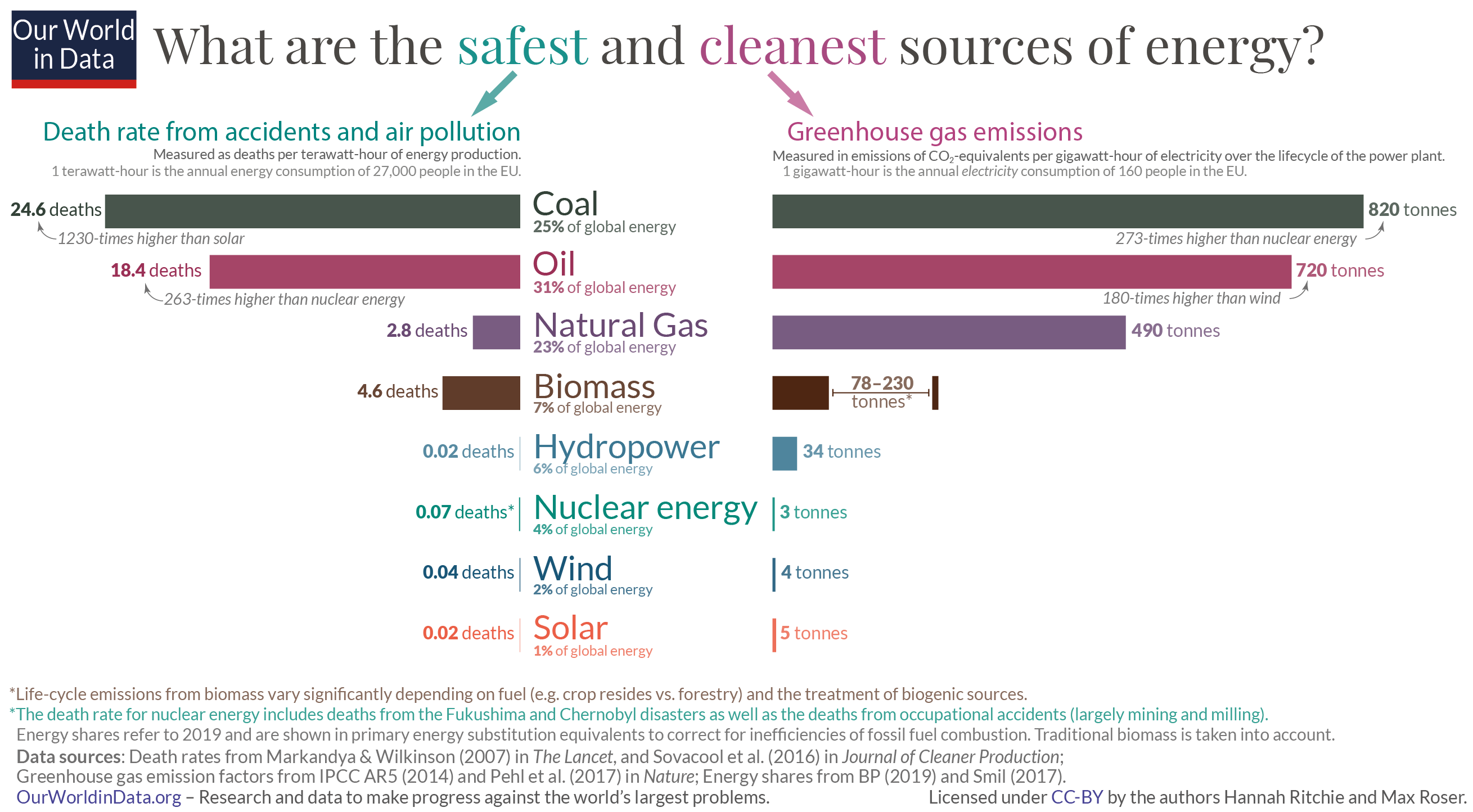
⚡️ Thorium – a gamechanger for future energy supply?
To tackle climate change, we need to divert from fossil fuels and opt for a new strategy. But an important question mark remains: What about nuclear energy? Could thorium have a key role to play?
Share this story!
First things first. How does a nuclear power plant work? To put it simply, it uses the radioactivity generated by the fission of atoms (usually of uranium 235 or plutonium 239) to heat water, and translate this into electricity. The idea is to divide heavy-atomic-heart atoms by shooting neutrons at them. It creates a chain reaction (radiation) that will boil water.
In theory, it seems rather simple, but this method is accompanied by risks. Indeed, if the chain reaction gets out of hand, or if even a tiny part of the radiation leaks, public health, and the environment are at risk. The incidents of Chernobyl (USSR, 1986), Fukushima (Japan, 2011), Three Mile Island (USA, 1979), or Sellafield (UK, 1957) are all famous examples of nuclear gone wrong.

Renewable energy or not – the debate is endless
Those in favor argue that nuclear energy has two big strengths. Firstly, it does not emit any or very low amounts of greenhouse gases. Hence, it makes an easy and quick alternative to coal or natural gas power plant. Secondly, it appears to be more effective than other means to produce electricity. According to the American Office of Nuclear Energy, it even has the highest capacity factor.
However, outside of the risks, those who oppose nuclear energy highlight one fact that is often underestimated: nuclear waste. Nuclear reactors as we know them may not expel greenhouse gas but they nonetheless need raw material, that causes waste. A lot of waste. In the United States, every year, 2000 metric tons of nuclear waste are produced. Currently, they are buried in concrete sarcophaguses, and their radioactivity remains from 1,000 to 10,000 years.
Thorium as an alternative
After this necessary introduction to the problem, let us all focus on an interesting alternative: thorium.
"Traditional" nuclear reactors, as we mentioned earlier, are fueled by uranium and plutonium. But there are other chemical elements that can induce a nuclear reaction to produce energy. One of them is the thorium, and its potential shows interesting prospects. Why so?
- Thorium is more abundant in nature than uranium. The economic viability seems therefore safer on longer terms.
- Thorium reactors would also be safer. If used in a Molten Salt Reactor, thorium particles are mixed with molten salt crystals, that under heat, become liquid, and transportable. In this state, the risks of reaction going out of hand are very much reduced.
- Thorium reactors would produce less radioactive waste and in smaller amounts.
- Because it is not naturally fissile, it requires a more complex and dangerous process if one wanted to use it for a nuclear weapon.
An alternative to handle with care
As we can see, this option shows great potential. However, despite its perks, everything about thorium is not gold. Because its attractive potential remains pure potential and expectations. We are still at the experimental stage.
Countries like China, Canada, the Netherlands, and Norway host several test projects. The results of these will be crucial for the development of thorium-based reactors. They will indeed determine which type of reactors would be more suitable to exploit this resource.
Furthermore, the waste from a thorium reactor is less dangerous, but the fissile derivation of thorium emits gamma rays at high intensity. It requires more care and safety measures when handling. And at high temperatures, molten salt has a tendency to corrode; hence further protection would be essential to guarantee safety.
But if the level of caution is respected and the results conclusive, thorium might become a gamechanger for the nuclear industry, and a new element to consider in the debate for or against nuclear energy.
By becoming a premium supporter, you help in the creation and sharing of fact-based optimistic news all over the world.


